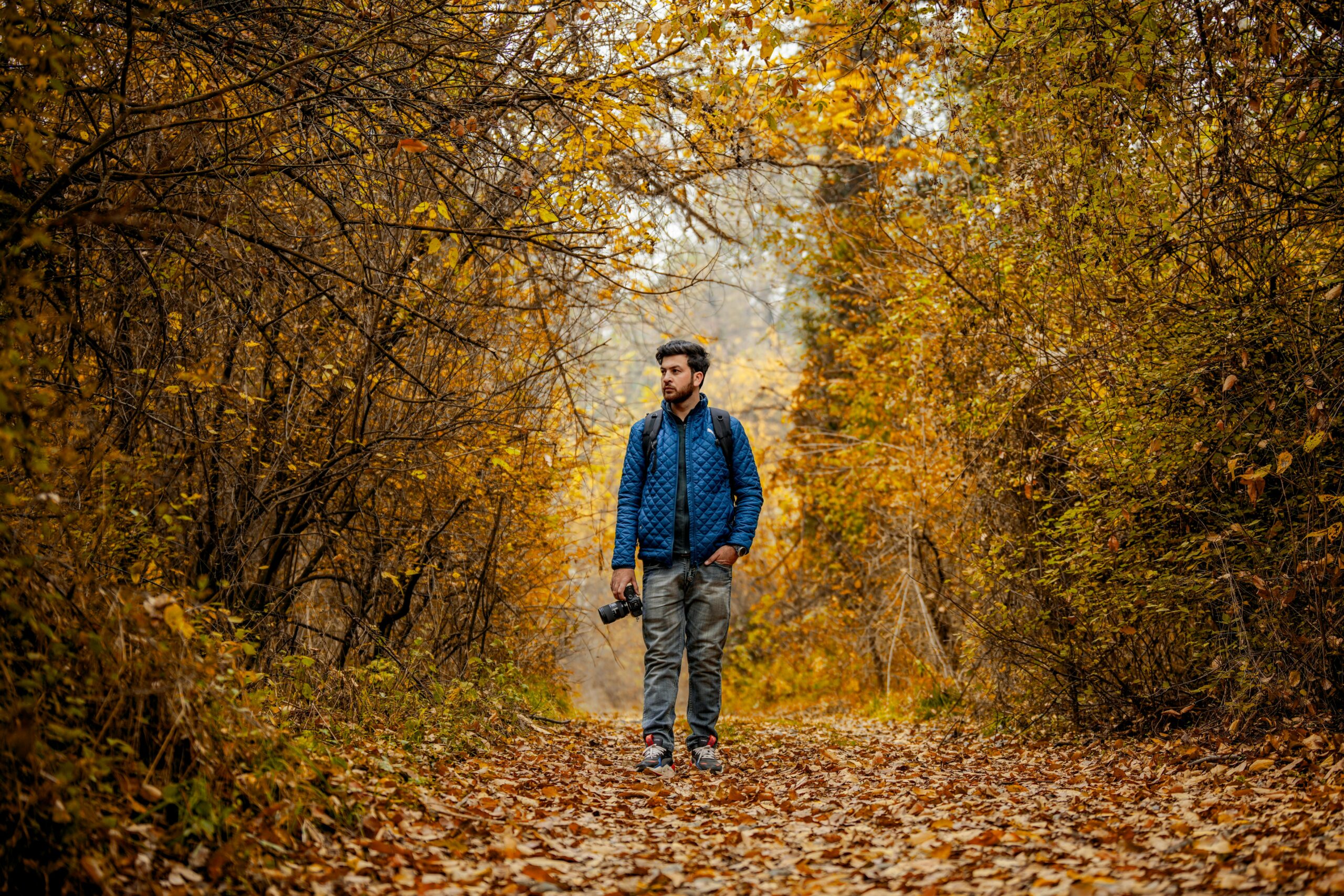Why Toronto Photographers Face Unique Training Decisions
Toronto represents Canada’s largest photography market with an estimated 1,200+ professional photographers serving the Greater Toronto Area’s 6.4 million residents according to industry data and Statistics Canada metropolitan population figures. This substantial market creates exceptional career opportunities whilst also presenting intense competition requiring professional-level capabilities distinguishing you from hundreds of similarly skilled photographers.
Toronto’s concentrated population also means numerous traditional photography training options including Ryerson University’s Image Arts programme, George Brown College photography courses, private photography schools, and countless workshops—more educational variety than any other Canadian city. However, this abundance of choice doesn’t necessarily mean optimal value or outcomes for aspiring professional photographers.
This comprehensive analysis examines Toronto-specific photography training considerations, comparing traditional in-person Toronto schools with online alternatives and helping GTA residents make informed education investments maximizing career returns whilst considering Toronto’s unique cost structure, market dynamics, and lifestyle factors.

Traditional Toronto Photography School Cost Reality
Toronto photography schools promote comprehensive professional training, established reputations, and in-person instruction benefits. However, honest cost analysis reveals total investment dramatically exceeding advertised tuition when accounting for Toronto-specific expenses and opportunity costs affecting GTA residents.
Tuition and Direct Education Costs
Ryerson University’s Image Arts programme charges approximately $8,500 annually for domestic students across four-year degrees totalling $34,000+ for complete bachelor’s education according to institutional fee schedules. While providing comprehensive education including photography, this extended timeline delays professional income generation by four years versus shorter professional training alternatives.
George Brown College’s Photography programmes charge $4,500-$6,000 annually for 2-3 year diploma programmes totalling $9,000-$18,000 complete education costs. These condensed timelines represent more rapid professional preparation though still require 2-3 years before career launch versus 6-12 month online professional training timelines.
Private photography schools and intensive programmes in Toronto charge $8,000-$25,000 for comprehensive professional training ranging from 6-month intensive certificates to 2-year diploma programmes. While faster than college or university routes, these private schools often cost more than longer traditional programmes whilst still requiring Toronto residence and associated living expenses.
Equipment rental, studio access fees, course materials, and supplies add $2,000-$4,000 annually to Toronto photography programme costs regardless of institution. Most traditional programmes require students to acquire professional equipment independently despite providing temporary access during coursework—resulting in separate $5,000-$12,000 equipment purchases post-graduation before career launch.
Toronto Living and Opportunity Costs
Toronto housing costs represent massive additional investments beyond tuition rarely mentioned in programme marketing. Average one-bedroom apartment rent exceeds $2,400 monthly ($28,800 annually) according to Toronto rental market data, with shared accommodations still costing $1,200-$1,500 monthly. Students relocating for full-time Toronto training face $24,000-$29,000 annual housing costs on top of tuition.
Toronto transit costs through TTC monthly passes ($156) add $1,872 annually for students commuting to Toronto campuses. Students driving face exponentially higher costs—downtown parking $300-$500 monthly, insurance increases for Toronto addresses, accelerated vehicle depreciation from city driving and traffic, and frequent parking tickets that seem inevitable in Toronto’s complex parking regulation environment.
Food and living expenses in expensive Toronto markets add $8,000-$12,000 annually even for frugal students. Toronto’s high cost of living across groceries, restaurants, entertainment, and basic necessities exceeds most Canadian cities, with student budgets stretched despite careful spending.
Opportunity costs through foregone employment represent perhaps largest hidden expenses—full-time Toronto photography study eliminates $35,000-$55,000 annual income for 1-4 years depending on programme selection. GTA residents often earn above Canadian median incomes, making employment cessation particularly costly compared to maintaining jobs whilst pursuing online training part-time.
Total investment for traditional Toronto photography education commonly reaches $60,000-$150,000 including direct costs, living expenses, and opportunity costs before earning first professional photography dollar. This substantial investment requires careful analysis ensuring returns justify costs and timelines align with career objectives.

Hidden Toronto-Specific Challenges
Toronto traffic and commute times consume 1-3 hours daily for GTA residents attending downtown campuses, representing substantial time costs beyond direct transit expenses. This commute time can’t be spent earning income, practicing photography, or enjoying personal time—it’s simply lost to Toronto’s notorious congestion.
Weather extremes including harsh winters (-20°C with wind chill), summer humidity, and unpredictable spring/fall conditions make regular Toronto campus attendance unpleasant and occasionally dangerous. Missing classes due to weather, arriving exhausted from difficult commutes, or struggling through illness exacerbated by transit exposure all impact learning effectiveness.
Toronto’s expensive lifestyle and social pressures create financial strain beyond housing and transportation. Living in Canada’s largest city involves implicit social expectations for dining, entertainment, and lifestyle that suburban or online-learning students avoid, incrementally increasing costs whilst studying in Toronto environments.
Campus-based schedules limit employment flexibility that online students maintain. Evening or weekend retail, service industry, or freelance work enabling income during study proves difficult when commuting to Toronto campuses for mandatory class attendance consuming prime earning hours.
Online Photography Course Advantages for Toronto Photographers
Online professional photography training provides compelling advantages for GTA residents seeking career preparation without Toronto school disadvantages. Understanding these benefits helps Toronto-area aspiring photographers make informed decisions maximizing training value whilst minimizing unnecessary costs.
Cost Savings and Financial Accessibility
Comprehensive online photography training courses typically cost $4,500-$8,500 CAD complete—representing 70-85% savings versus Toronto traditional programmes before considering additional online cost advantages. This dramatic tuition reduction makes professional training accessible without massive debt or family financial strain.
Zero housing costs represent $24,000-$29,000 annual savings versus relocating to Toronto for full-time programmes. GTA residents living with family, owning homes, or renting in Mississauga, Brampton, Vaughan, or other surrounding cities maintain existing housing situations without expensive Toronto downtown accommodation.
Eliminated commute costs save $2,000-$5,000 annually in TTC passes or vehicle expenses whilst recovering 1-3 hours daily otherwise lost to Toronto traffic. This time savings enables additional income generation, photography practice, or personal wellbeing activities impossible when commuting consumes major daily portions.
Continued employment during online training maintains $35,000-$55,000+ annual income throughout skill development, eliminating opportunity costs that traditional full-time programmes necessitate. Most successful photographers build careers gradually whilst maintaining existing jobs—online training supports this pragmatic approach unlike Toronto programmes requiring immediate employment cessation.
Equipment inclusion in quality online courses eliminates separate $5,000-$12,000 professional gear investments required post-graduation from traditional programmes. Receiving professional cameras, lenses, and equipment integrated with training accelerates career launch whilst ensuring equipment familiarity develops naturally throughout coursework.
Payment flexibility through plans starting from $35/week CAD makes professional training immediately accessible without years of savings accumulation or substantial student loan applications. Manageable weekly payments aligned with typical household expenses reduce financial stress whilst accelerating career development versus delayed training awaiting sufficient savings.

Schedule Flexibility for GTA Lifestyles
24/7 course access allows progression during evenings, weekends, or whenever personal schedules permit without rigid class schedules dictating availability. This flexibility proves essential for working professionals, parents, or individuals with commitments preventing consistent Toronto campus attendance.
Self-paced learning accommodates varying weekly commitment levels—intensive periods during light work seasons alternating with reduced study during busy employment phases. This variable progression proves impossible in traditional Toronto programmes requiring consistent weekly attendance regardless of competing life demands.
Weather independence eliminates cancelled classes, dangerous winter commutes, or forcing campus attendance through blizzards, ice storms, or extreme cold that regularly disrupts Toronto winter transit. Learning from home provides consistent access regardless of conditions making travel difficult or dangerous.
Toronto traffic unpredictability can’t disrupt online learning—401 delays, TTC issues, or parking unavailability don’t cause missed lessons or late arrivals impacting learning when training occurs from home. This reliability proves especially valuable for suburban GTA residents facing longest, most unpredictable commute times to downtown Toronto campuses.
Family and caregiving responsibilities accommodate online learning flexibility. Parents managing childcare, individuals supporting aging parents, or those with unpredictable family demands maintain training progress through flexible access impossible with mandatory attendance schedules.
Toronto Market Access Without Toronto Costs
Online training prepares you specifically for Toronto/GTA photography markets without requiring Toronto residence during education. Understanding GTA market dynamics, Toronto client expectations, and regional pricing strategies receives attention in Canadian-focused online programmes whilst students maintain lower-cost suburban or rural living situations.
Immediate GTA market entry post-training doesn’t require additional relocation—you’re already positioned within target market geography. Traditional Toronto programme graduates from other provinces often leave Toronto post-graduation due to high living costs, wasting Toronto-specific education and network development when returning home to establish careers.
Suburban GTA photography businesses often prove more profitable than downtown Toronto operations despite slightly lower pricing—dramatically lower overhead, easier client access, free parking, and home-based studios create superior profit margins compared to expensive Toronto commercial spaces and challenging downtown logistics.
Building client bases before training completion proves possible with online learning—accepting small projects during later coursework stages generates portfolio work and income. Toronto campus students rarely start businesses before programme completion due to full-time study commitments preventing client work during education.

Learning Effectiveness: Online vs Toronto Classroom Outcomes
Cost and flexibility advantages mean nothing without learning effectiveness—comprehensive photography education must develop technical mastery, creative vision, and business acumen enabling professional success regardless of delivery format. Graduate outcomes and skill development research reveal online training delivers equivalent or superior results for most students.
Technical Skill Development Comparison
Photography training suits online delivery exceptionally well—learning photography through high-quality video instruction provides clear visibility of camera operation, lighting setups, and editing techniques. Multiple camera angles, screen recordings, and close-up demonstrations often prove clearer than single-viewpoint Toronto classroom observation from various student positions.
Hands-on practice with personal professional equipment throughout online training develops genuine competence impossible when sharing limited classroom resources amongst 20-30 Toronto students competing for gear access during scheduled sessions. Quality online photography courses including equipment enable daily practice accelerating skill development through repeated application.
Immediate practical application as you learn reinforces concepts through active engagement. Completing assignments with your own camera, processing images in your workflow, and developing personal editing styles happens naturally when equipment ownership begins day one versus awaiting post-graduation equipment acquisition from Toronto programmes.
Toronto-based practice locations during online training provide geographic familiarity with local parks, urban settings, and regional locations you’ll photograph professionally. Traditional programme students often practice primarily in campus environments or limited nearby locations, requiring location learning post-graduation when working professionally.
Review and repetition capabilities enable rewatching complex demonstrations multiple times—impossible in Toronto classrooms where instruction occurs once during scheduled sessions. Self-paced online learning allows spending additional time mastering challenging concepts whilst moving quickly through familiar material, personalizing efficiency impossible in pace-averaged classroom instruction.

Business Training and Career Preparation Quality
Integrated photography business courses throughout online technical training prepare students for commercial reality versus Toronto programmes often treating business skills as afterthoughts. Comprehensive online education emphasizes entrepreneurial capabilities equally with artistic development—both prove essential for photography career success.
GTA market realities including Toronto pricing strategies, suburban vs downtown positioning, and regional client expectations receive specific attention in Canadian-focused online training. Generic Toronto classroom business instruction often lacks market-specific strategies or teaches outdated approaches ineffective in current digital-focused Canadian markets.
Marketing and client acquisition systems development throughout training rather than post-graduation enables progressive business building during education. Many online students generate initial photography income during later training stages through portfolio work and weekend projects impossible for Toronto full-time students committed to intensive classroom schedules.
Toronto networking opportunities through traditional programmes provide genuine value though online learning communities increasingly replicate benefits through digital platforms and organized regional meetups. Many online students maintain stronger graduate networks than Toronto classroom cohorts that dissipate rapidly post-graduation as students return to diverse provinces.
Equipment Access and Hands-On Learning Considerations
Professional photography requires substantial equipment investments—cameras, lenses, lighting, accessories totalling $8,000-$15,000 minimum. Training format dramatically affects equipment access during education and career launch phases affecting learning quality and post-graduation expenses.
Toronto School Equipment Limitations
Toronto classroom programmes typically provide temporary equipment access during coursework—students check out cameras, rent lighting kits, or use shared studio gear during scheduled sessions. However, this shared access creates significant limitations affecting skill development quality and speed.
Competing with 20-30 classmates for limited equipment means restricted practice time, waiting for popular gear, and working with unfamiliar equipment varying across rental periods. This inconsistency prevents the equipment familiarity developing naturally through extended personal ownership and daily use.
Studio access during limited scheduled hours constrains practice opportunities—Toronto campus studios remain locked outside class times or require advance booking systems limiting spontaneous practice sessions. This restriction particularly impacts employed students whose free time misaligns with studio access hours.
Post-graduation equipment purchases remain necessary regardless of Toronto programme equipment access during training. Traditional graduates face identical $8,000-$15,000 investments despite months of classroom gear exposure—this separate investment delays career launch whilst accumulating necessary equipment from savings or loans.

Online Course Equipment Integration
Quality online programmes including professional equipment eliminate acquisition barriers entirely whilst ensuring equipment familiarity develops naturally throughout training. You receive camera bodies, lenses, lighting equipment, and accessories carefully selected for professional Canadian photography—not consumer gear insufficient for commercial work.
Immediate hands-on practice with professional equipment throughout every lesson and assignment develops intuitive operation impossible through theoretical study alone. By training completion, your camera feels like natural extension of creative vision through months of daily use rather than unfamiliar tool recently acquired requiring additional practice.
Personal equipment ownership enables experimentation, testing, and practice impossible with borrowed classroom gear requiring return at session end. Weekend practice, experimental projects, and personal photography all develop professional skills whilst building portfolio work using training equipment available whenever inspiration strikes.
Equipment value extends beyond training completion—you launch your career fully equipped rather than facing substantial additional investment before accepting first paid projects. This seamless student-to-professional transition eliminates common delays whilst graduates slowly accumulate equipment from early project earnings.
Toronto photography opportunities during training including practicing in High Park, Trinity Bellwoods, Distillery District, or along waterfront locations become possible immediately with personal equipment. Traditional students often can’t access these locations during training due to equipment checkout restrictions and scheduling constraints.
Toronto Photography Market Career Opportunities
Toronto’s massive photography market creates exceptional opportunities for properly trained professionals whilst also presenting intense competition requiring strategic positioning. Understanding Toronto market dynamics helps you evaluate whether local career opportunities justify training investments regardless of format selection.

GTA Market Size and Revenue Potential
Toronto-area wedding photography alone represents $60-80 million annual market according to wedding industry data and regional spending estimates. With 30,000+ weddings annually across the GTA, properly trained wedding photographers serving this market earn $65,000-$120,000 annually through 25-40 bookings at $2,500-$4,500 per wedding.
Corporate and commercial photography serving Toronto’s financial district, technology companies, marketing agencies, and Fortune 500 Canadian headquarters creates substantial demand for professional headshots, event coverage, and marketing imagery. Commercial photographers serving corporate clients earn $75,000-$140,000 annually through higher per-project fees compensating for fewer total bookings.
Portrait photography demand from 6.4 million GTA residents creates continuous opportunities for family portraits, newborn photography, professional headshots, and personal branding imagery. Portrait specialists typically book 100-200 sessions annually at $300-$800 per session generating $50,000-$95,000 annual revenues.
Real estate photography serving Toronto’s active property market ($200+ billion annual transactions) provides steady income for photographers charging $150-$400 per property shoot. Many photographers develop hybrid businesses combining event/portrait work with commercial real estate photography generating income stability through diversified client bases.
Competition and Market Saturation Realities
1,200+ professional photographers operating in GTA creates intense competition requiring differentiation through specialization, premium positioning, or competitive advantages. Simply offering “photography services” without strategic positioning struggles in oversaturated Toronto markets where potential clients face overwhelming options.
Price competition from part-time photographers, newcomers underpricing markets, and overseas photographers offering cheap packages pressures Toronto rates downward. Understanding how to position above commodity pricing through value differentiation proves essential for sustainable Toronto photography businesses avoiding race-to-bottom competition.
Toronto market advantages including population size, economic activity, and cultural diversity create opportunities that secondary Canadian markets can’t match. However, dramatically higher operating costs and intense competition mean Toronto success requires superior business acumen beyond pure technical competence.
Suburban GTA markets including Mississauga, Brampton, Vaughan, Markham, and other surrounding cities often provide more favorable competition-to-population ratios than downtown Toronto. Strategic positioning serving specific suburban communities creates local authority and competitive advantages versus fighting Toronto downtown saturation.

Making Your Toronto Photography Training Decision
Toronto residents and GTA photographers face unique training decisions given local school availability balanced against Toronto’s high costs and online alternatives’ compelling value propositions. Systematic evaluation of personal circumstances, learning preferences, and career objectives determines optimal training selection.
Career objectives and timeline expectations influence appropriate training selection. Individuals seeking rapid professional transition benefit from accelerated online training whilst those pursuing four-year bachelor’s degrees with broader education accept extended timelines and higher costs.
Financial circumstances including available capital, family support, and income requirements dramatically affect viable options. Online training’s lower costs, equipment inclusion, and income preservation suit most Canadian students whilst traditional Toronto programmes serve those able to invest substantially without immediate income requirements.
Learning style preferences impact success probability with different formats. Self-motivated individuals comfortable with independent study thrive online whilst others prefer structured classroom accountability—though online programmes increasingly incorporate structure and support features bridging this gap.
Geographic considerations including current GTA residence location, housing situations, and family obligations affect training feasibility. Vaughan or Mississauga residents may find online training optimal whilst downtown Toronto residents already centrally located might explore traditional options if costs prove manageable.
Begin Your Toronto Photography Career Today
Toronto’s massive photography market creates exceptional opportunities for properly trained professionals combining technical excellence, creative vision, and business acumen. Whether pursuing Toronto-based careers or serving broader GTA markets, comprehensive training prepares you completely for success in Canada’s most competitive, most lucrative photography environment.
Canadian Photography School’s professional photography course provides complete training specifically designed for Canadian markets including Toronto-focused business strategies, GTA pricing approaches, and metropolitan market positioning. With professional equipment included and payment plans from $35/week CAD, you can begin your Toronto photography career immediately without massive upfront investment or relocating to expensive downtown accommodation.
Explore our specialized portrait photography, wedding photography, and photography business courses designed for Canadian photographers building sustainable creative businesses in 2025’s competitive Toronto and GTA markets.




